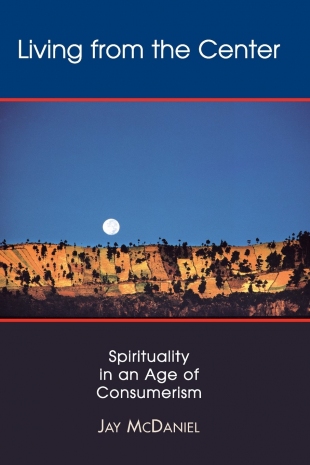"I recommend instead that we recognize that there is an ultimate mercy in life — a deeper grace — in terms of 'success' and 'failure' as defined by consumer culture are quite irrelevant. I want to call this deeper grace the luckiness of being alive. Not surprisingly, a recognition of this luckiness does not come easily in our age of consumerism. To be sure, consumerism does speak of a luck we can enjoy if we win the lottery. But it always encourages us to compare ourselves with others who seem luckier because they have more consumer goods or better figures, because they have bigger houses or higher salaries. In so doing, it creates a culture of envy, not gratitude. It neglects the deeper luckiness — a pure grace — that lies at the heart of reality.
"This grace is not an idea that we entertain in our heads or a condition that is imposed on us from the outside. Rather, it is a living gift — like fresh bread, or fresh air, or fresh water — that lies within us yet deeper. It is to this luckiness that the poet Gerald Stern points to when he says, 'Lucky life. Oh lucky life. Oh lucky lucky life.'
"Stern's words are playful, childlike, and extravagant. It is fun to say them aloud, like a mantra or chant. A grace chant. But perhaps they are also a little embarrassing to adults, who are all too aware of the darker sides of life. And such extravagant language does not come easily to us, because we too often feel inhibited by the armor of envy. Still, the words are psalmlike and true, worthy of being included in any sacred scripture. Let's try them out. Let's chant the grace mantra.
"Let's say that we are indeed lucky to be alive, not only when things are going well for us and for those we love, but also when we are sad and lonely, or mean and bitter.
"Let's assume further that our luckiness does not lie in the circumstances we face, which can be fortunate or unfortunate, deserved or undeserved. Instead, let's recognize that bad things do happen that could and should have been otherwise. Earthquakes kill thousands; people are murdered; children are abused; good people are nailed to crosses. Sometimes we ourselves are the nailers.
"Let's say instead that our luckiness lies in a capacity to respond creatively to these circumstances, day by day and moment by moment, in fresh and healing ways. If we are sad, for example, we can lie gently with our sadness and let time begin its healing. If we are mean, we can be honest about our meanness and let honesty wash our souls. If we have nailed someone to a cross, we can ask for forgiveness. If we have ourselves been nailed, we can choose to forgive.
"Let's go further. Let's assume that in these creative responses we are inwardly animated by a source of wisdom and compassion deep within nature that is forever fresh and new, however stale we might feel. Let's say that there is a Freshness Deep Down. Let's call it God.
"Perhaps better, let's call it God's Breathing, since the Freshness is dynamic and nourishing, like breathing itself. Let's say that this divine Breathing is everywhere in the universe such that there is nowhere we can go, not even to hell, where it is not already present, awaiting our openness to its healing power.
"Let's say that this, then, is why we are so lucky to be alive. It is not that everything happens as it should or that we always do the right thing. It is that, whatever happens and whatever we do, there is always hope for us and for all living beings. We can be animated by the Freshness. We can be breathed by the Breathing. We can be washed by the Ocean. We can live from the Center.”
